China-Taiwan Conflicts: China- Taiwan conflicts have always been a major concern for not only Taiwan but the whole world. Know everything related to their relations, the role of the US, and the impact of the tensions on the world.
The Conflict
The conflict between China and Taiwan is about the dispute on Taiwan’s political status. The conflict started after Taiwan’s administration was transferred to the Republic of China from Japan after the Second World War in 1945, along with the split between the People’s Republic of China (PRC) and the Republic of China (ROC) as a consequence of the Chinese Civil War.
What Exactly Is Taiwan?
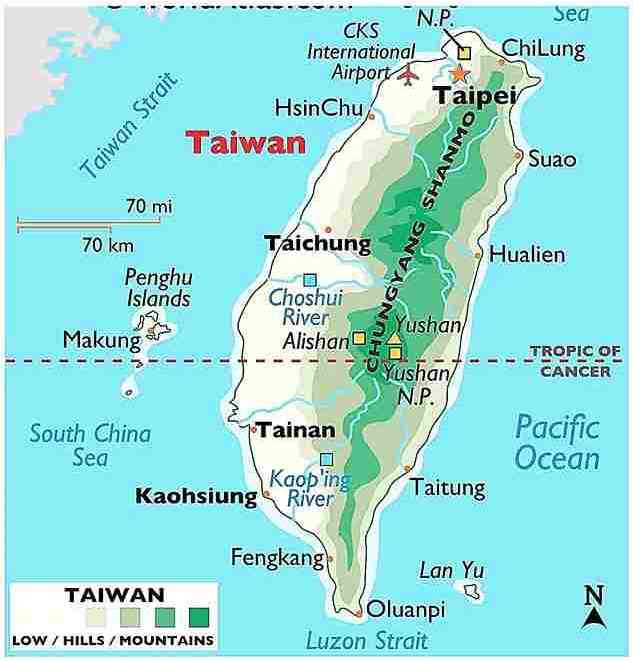
Source: WorldAtlas.com
Taiwan is an island nation. It is a part of the “first island chain”.
In the first island chain, there are some US-friendly territories. These US-friendly territories are of great foreign policy importance for the US.
The island nation of Taiwan is situated around 100 miles from China’s southeast coast.
At present, Taiwan has its very own constitution. The country has around 300,000 active armed forces troops and democratically elected people.
How Does China See Taiwan And Why Does It Want To Control It?
Simply stated, the dragon sees the island nation as a breakaway province that the former aims to bring under its control.
As stated by China’s President Xi-Jinping, “reunification with Taiwan must be fulfilled”, and to attain this control, China would not hesitate to resort to force if needed.
If China takes over Taiwan, it will gain immense power over the computer chip industry across the globe, too.
Does Taiwan Belong To China? The History Of The Island Nation
17th Century
Taiwan initially came under complete control of China. This was when the Qing dynasty commenced its administration over it.
1895
However, in 1895, China gave up Taiwan to Japan in the wake of China’s defeat in the first Sino- Japanese War.
1945- 1949
Then again, in 1945, the control over Taiwan was taken back by China after the defeat of Japan in the Second World War.
Next came a civil war in mainland China which changed the scenario. The war was between the nationalist government headed by Chiang Kai-shek and the Communist Party led by Mao Zedong.
Surprisingly, in 1949, the Communist Party won the war and took control of Beijing.
Now, the defeated party, led by Chiang Kai-shek and the nationalist party called the Kuomintang, moved to Taiwan. They governed the island for many decades. It has been a prominent party in the history of the island nation.
Now, the question arises if Taiwan was always a part of China or not.
Chinese advocates suggest that Taiwan has always been a part of China. It strengthens its argument by pointing out this history,
However, Taiwan never agrees with this point.
The island nation argues that Taiwan was never a part of the modern-day Chinese state established in 1949 under Mao, or the Chinese state formed in the wake of the 1911 revolution.
Today, over 13 countries across the globe consider Taiwan a sovereign country.
This low number of countries is because China exerts immense diplomatic pressures on countries to not recognize the island as a sovereign country, or show any sign that recognizes it that way.
What Will Happen If China Takes Over Taiwan?
According to some experts, if China takes over Taiwan, the former will become more autonomous to project its powers in the western Pacific region.
Moreover, if this takes over happens, China could also threaten the United States military bases, especially in the island territories.
However, China denies these mal-intentions and claims its objectives to be entirely peaceful.
China-Taiwan Relations
- In the 1980s, Taiwan relaxed its rules in matters of visits and investments in China. Moreover, in 1991, Taiwan proclaimed that the war with China was over. All these steps led to improvements in the relations between the two countries.
- Next, China put forward the “one country, two systems” option, which would give Taiwan massive autonomy if it agrees to come under Beijing’s control. However, Taiwan did not accept the offer. China insisted that Taiwan’s ROC government wasn’t legitimate.
- In 2002, Taiwan took a brave step and elected Chen Shui-bian as its president. The president and his Democratic Progressive Party (DPP) openly backed “independence.”
- Mr Chen got re-elected in 2004. A year after that, China passed the “anti-secession law” which stated China’s right to use “non-peaceful means” against the island nation Taiwan in case it attempted to secede from China.
- Next, in 2008, Ma Ying-jeou succeeded Mr Chen and the president attempted to improve the relations between both countries through economic agreements.
- In 2016, Taiwan’s present-day president Tsai Ing-wen got elected.
- After two years of this election, Beijing spiked pressure on international companies. China threatened these companies that they must list Taiwan as a part of China on their websites. If the companies do not agree, they would be prohibited from doing business in China.
- On the other hand, Ms Tsai won again in 2020 with an outstanding 8.2 million votes. Here, in Hong Kong, there was massive unrest against China’s growing influence.
- China, with the intent to strengthen Beijing’s assertion, implemented a national security law in Hong Kong in the same year.
Comparison of Armed Forces
China is the second country after the United States that spends the most on strengthening its defence. Its defence capabilities encompass a wide range of defence advancements, including missile technology, naval power, cyber-attacks, and aircraft.
You guessed it right, there is a significant difference between the defence capabilities of both countries, with China being way more powerful than Taiwan.
Experts suggest that Taiwan can slow some Chinese attacks and prevent damage, but would need the help of its allies.
The United States proves to be a major ray of hope. The United States sells its arms to Taiwan.
Is There Any Hope For Taiwan?
China attempts to fulfil its “reunification” goal mainly through military means. Needless to say, China takes immense pride in its armed forces being superbly powerful. In comparison to the military force of Taiwan, China holds a significant upper hand.
The Role And Take Of The US
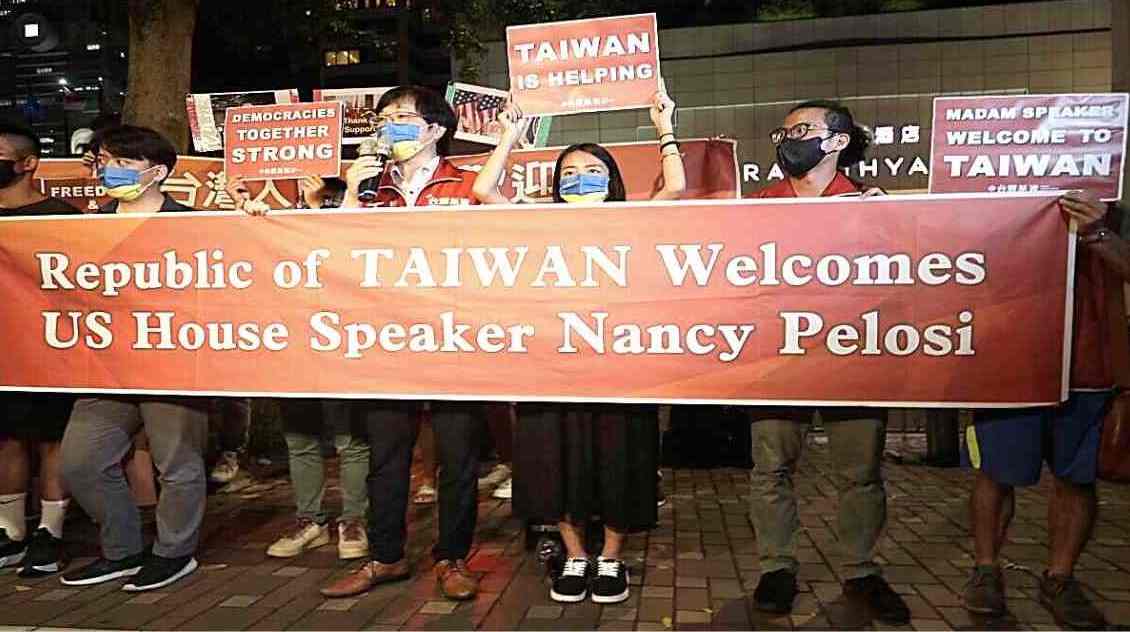
Source: The Indian Express
To date, Washington sticks to its “strategic ambiguity” policy which implies that the US is intentionally holding an unclear stand on whether it should defend Taiwan or not.
On the diplomatic front, the United States affirms the “One-China policy”. The policy recognizes only one Chinese government in the capital Beijing.
Thus, the United States has formal ties with China and not the island nation of Taiwan. Nonetheless, the United States also pledges to supply defensive weapons to Taiwan in case of any military attacks.
However, the United States' stand on the issue becomes puzzling after President Biden’s answer in Washington. In May, when the President was asked if the States would militarily defend Taiwan, the President gave a ‘Yes” as the answer.
Impact Of Pelosi’s Visit
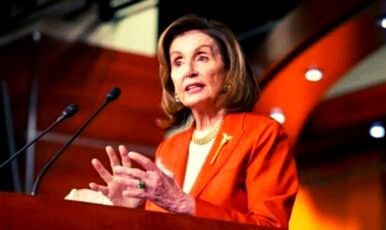
Source: VoaNews
Speaker of the United States House of Representatives, Nancy Pelosi’s visit to Taiwan has changed some dynamics between the US and China for the worse. Beijing condemns the visit as “extremely dangerous”.
The spiking tensions caused in the aftermath of the visit have strained the relations between Washington and Beijing.
The US-China relations are on the precipice after the visit of the Speaker.
Recent Military Activities By China
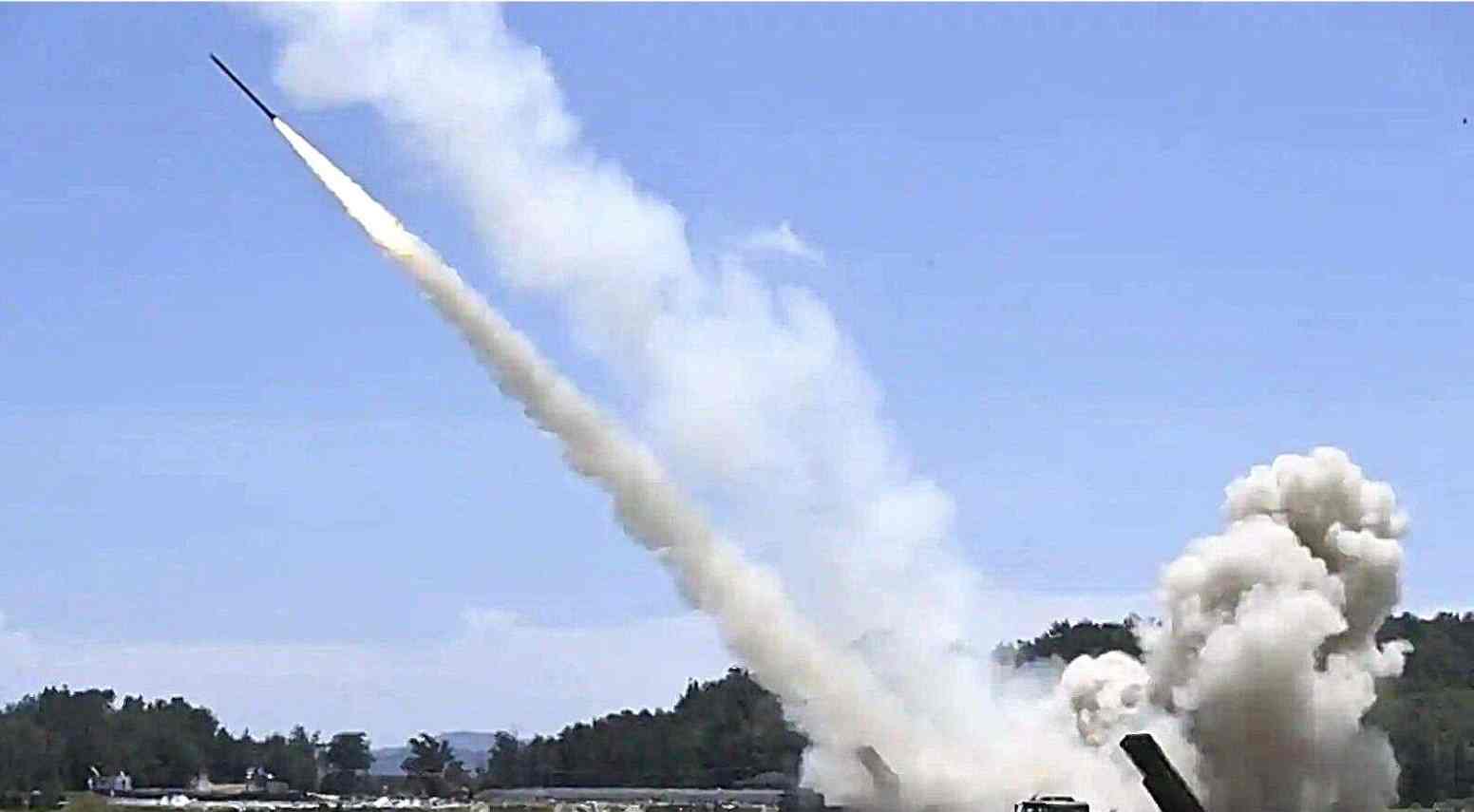
Source: Livemint.com
Following US Speaker Pelosi’s visit to Taiwan, China fired Dongfeng ballistic missiles near the island nation as part of massive military drills.
Near the northeast and southwest coasts of Taiwan, 11 Dongfeng ballistic missiles were launched by China.
This is seen as the People’s Liberation Army’s largest missile test near Taiwan’s coasts in decades.
The drills were supposed to end on the 7th of August, but China is not ready to stop yet. The country continued with its military activities even on the next day, i.e., the 8th of August.
2021
Last year, China attempted to sharply increase the pressure on Taiwan by launching military aircraft in Taiwan’s Air Defense Zone. This zone is a self-declared area to identify, monitor and control foreign aircraft for national security.
Last year, 56 such incursions were reported in a single day.
Taiwan And The Rest Of The World
Even if only 13 countries identify Taiwan as a sovereign country, the island nation holds great importance to the world.
Taiwan is one of the greatest sources of computer chips that are made to use in mobile phones, watches, game consoles and laptops all around the globe.
According to an estimate, the Taiwan Semiconductor Manufacturing Company, a Taiwanese company, has over 50% of the world’s market. Needless to say, Taiwan is dominant in the global production of computer chips.
The People Of Taiwan - What Do They Think?
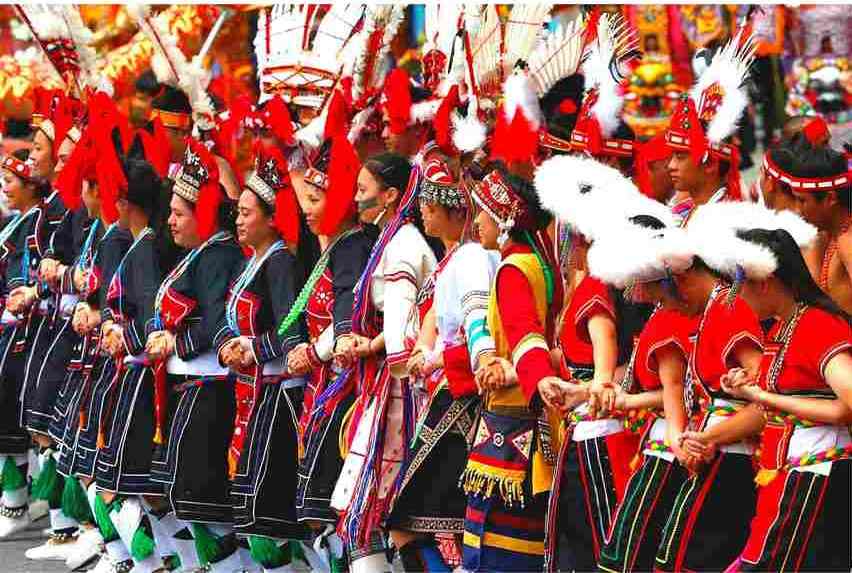
Source: East Asia Forum
A research conducted in 2021 conducted by the Taiwan Public Opinion Foundation, states that despite the severe tensions between the two countries, the people of Taiwan are not very troubled.
Moreover, most of the population does not feel there would be a military conflict between the nations.
Additionally, most people in Taiwan recognize themselves as Taiwanese. This distinct national identity showcases their nationalist feelings for the country.
According to research conducted in the early 1990s, the number of people identifying themselves as Chinese or as a part of both nations has decreased, stating that an increasing number of people consider themselves distinctly Taiwanese.
Having said that, some Taiwanese people are afraid that their economy is dependent on China. Yet another group of Taiwanese people assume that closer business links with China would decrease the chances of China militarily attacking the country.
Not to miss, the “Sunflower Movement” is an important movement in this context. The movement sparked in 2014 as a result of a controversial trade agreement. Students and activists protested against China’s growing influence over Taiwan in Taiwan’s parliament.
Now, the ruling DPP party is of the view that supports formal independence while on the other hand, KMT favours unification with China.
Comments
All Comments (0)
Join the conversation